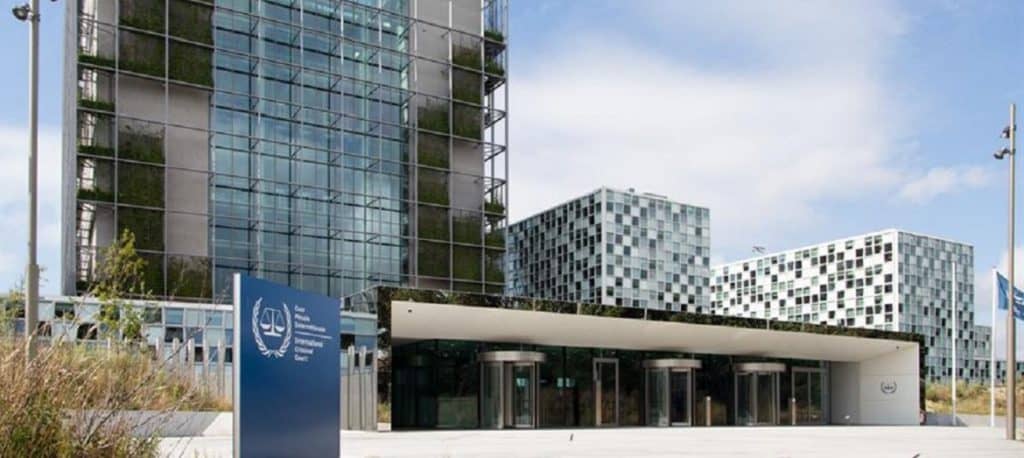María Isabel Niño- Rada
The International Criminal Court (ICC), is a permanent judicial body established in 1998 by the Rome Statute, to prosecute individuals accused of genocide, war crimes, crimes against humanity and crimes of aggression.
 The court represents a specialized type of transnational justice devoted to prosecuting criminal activity. The court began sittings on 2002, after 60 countries ratified the agreement to become members of this tribunal. Although the Rome Statute was widely praised, few countries in the Middle East or Asia joined. China, Russia, and the United States also declined to participate, even after the US was one of the states that worked the most to create the ICC.
The court represents a specialized type of transnational justice devoted to prosecuting criminal activity. The court began sittings on 2002, after 60 countries ratified the agreement to become members of this tribunal. Although the Rome Statute was widely praised, few countries in the Middle East or Asia joined. China, Russia, and the United States also declined to participate, even after the US was one of the states that worked the most to create the ICC.
In 2000, President Bill Clinton signed the statute but did not send it to the Senate for ratification. Two years later, his successor, George W. Bush, formally withdrew the signing of the treaty and officially informed the UN Secretary-General through a notification that the United States no longer intended to ratify the treaty and that is not subject to any of the obligations established therein.
The Bush administration tried to reach bilateral agreements with different governments around the world so that they would commit not to send US citizens to the ICC. The reason for this request was that although in principle the ICC cannot prosecute US citizens because that country is not a party to the Rome Statute, the Court is competent in cases in which the alleged crimes have been committed in territory of one of the states that are part of it.
The lack of participation of the United States poses an important challenge for the court, since it works under the principle of subsidiarity, which means the court can only intervene as a last resort to prosecute the most heinous offenses in cases where national courts fail to act by lack of capacity or lack of will. Besides, the United States had threatened to withdraw its troops from United Nations peacekeeping forces unless its citizens (both military and civilian) are exempted from prosecution by the ICC.
This situation have complicated the action of the Court, considering the power the United States has in the international system, especially when the court needs the state cooperation in order to act. The position against the ICC adopted by the United States seems to be a logical consequence of an ideological and philosophical position, the American exceptionalism, which consists in considering itself an exceptional nation that should not be governed by the parameters of other States or courts.
Despite this situation, in a 2016 report, the ICC had stated that there was a reasonable basis to believe that the US military had carried out torture in secret detention centers operated by the CIA in Afghanistan. Therefore, it was expected that an investigation would be carried out by the Court to examine the actions of the Taliban, the Afghan government and the US forces, since Afghanistan is a State party to the Rome Statute and the alleged crimes occurred under that territory.
In addition, Bensouda’s office noted that although the United States says it has investigated military abuses, there appears to be no investigation to clarify the “criminal responsibility” of those who gave the orders, much less to prosecute members of the US intelligence agency. In this case, this international body could enter to investigate the cases if it is shown that the United States did not want to resolve them.
In November 2017, the Court authorized Bensouda to carry out preliminary investigations, which are only the first stage of any case that reaches the ICC. And in March of this year, the court authorized her to advance to the second step and begin formal investigations for possible war crimes against various members of all actors in the conflict, including the US military and intelligence agents.
While the court continues investigating whether the United States forces have allegedly committed war crimes in Afghanistan, US Secretary of State Mike Pompeo accused the ICC of illegitimate attempts to bring Americans under its jurisdiction and announced sanctions against the Court’s prosecutor Fatou Bensouda and the head of the Jurisdiction Complementarity and Cooperation Division, Phakiso Mochochoko.
The Secretary of State described the ICC as a completely broken and corrupt institution, and recalled that his country never ratified the Rome Statute created by the court, adding that they will not tolerate its illegitimate attempts to subject Americans to its jurisdiction. Pompeo said the United States was taking this step allegedly because the ICC continues to target Americans.
The announcement follows an executive order issued by President Donald Trump in early June on blocking the property of certain persons associated with the ICC. Since 2019, the Trump administration had withdrawn Bensouda’s US visa.
The ICC affirmed the new measures are an attempt to interfere with the Court’s judicial and prosecutorial independence and crucial work to address grave crimes of concern to the international community as mandated under the ICC Rome Statute system of international criminal justice, and the rule of law more generally. Meanwhile, O-Gon Kwon, President of the Assembly of States Parties (ASP) – the Court’s management oversight and legislative body – strongly rejected what he also described as the “unprecedented” measures against the treaty-based international organization.
The conduct of the United States poses a critical ethic debate, since it is not a behavior the international community should approve, considering that there are universal principles that when agreed must be followed equally by all states, which is the case of the mandate of the international law to prosecute the most heinous crimes.
Even though the United States is not a state party of the ICC, each and every member of the international system must condemn crime at all costs and even the US should not be an exception.
Author: María Isabel Niño Rada (Professional Specialized in Presidential Council for Human Rights and International Affairs; Lawyer and professional in International Relations from the Universidad del Rosario, Colombia; Diploma in International Protection of the Human Rights of Women from the Universidad Austral, Argentina. She is currently enrolled in a Postgraduate degree in Constitutional Law at the Pontificia Universidad Javeriana. Bogotá D.C. Area, Colombia)
(The views expressed in this article belong only to the author and do not necessarily reflect the views of World Geostrategic Insights)







